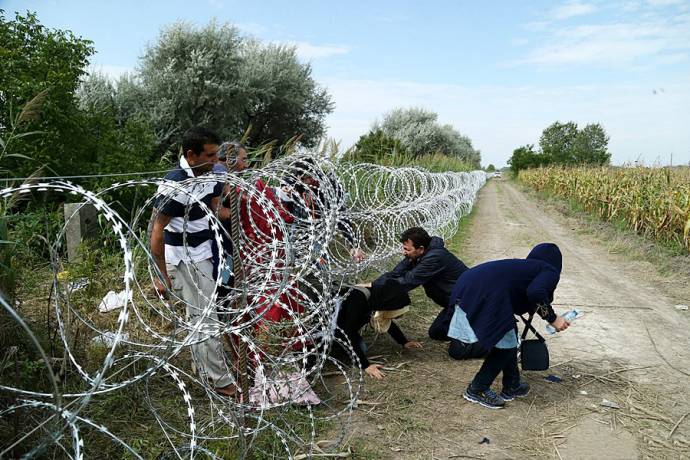He said returning migrants to Slovenia once they have reached Germany would be unacceptable because Slovenia had not been the first safe country they had entered.
Under the valid European asylum laws, which proved inefficient during the 2015 migration crisis, the first member state that a refugee enters is responsible for processing their asylum request.
Germany has been in contact with several EU member states in an effort to make agreements with them to curb secondary movements of asylum seekers.
This raises concern that a new mini Schengen zone could be formed or that the existing Schengen zone could be fragmented.
Cerar asserted Slovenia was not making any such bilateral agreement with Germany or any other country. Slovenia was never approached with the proposal of any such arrangements, the outgoing prime minister said.
Cerar said that the issue of migrations was Germany's internal political problem and that now a European solution was being sought.
EU leaders are expected to be urged today to take all the necessary legislative and administrative measures to curb the secondary movements of asylum seekers and to closely cooperate in these efforts.
Slovenia can only agree to solutions that benefit the EU and do not harm Slovenia, Cerar said.
He said he was not worried by Slovenia's position in the Schengen Area because the country's protection of the Schengen border was exemplary, but he does feel that the Schengen project is in danger.
He reiterated that the continuation of unwarranted border checks on internal Schengen borders such as those on the Slovenian-Austrian border could be fatal for the Schengen project.
Apart from discussing ways to prevent secondary migrations, EU leaders will also discuss today the proposal to set up migration centres outside the EU in a bid to prevent trafficking in migrants and migrant arrivals to the EU.
Slovenia supports this idea provided that international law is respected and that international refugee or migration organisations are present at the centres to ensure human treatment of refugees and their separation from other migrants, Cerar said.
The EU would set up these centres in cooperation with the UN Refugee Agency and the International Organisation for Migration. On the eve of the EU summit, the two organisations said that the people rescued in international waters must be transported to safety to the EU or potentially somewhere else as soon as possible.







